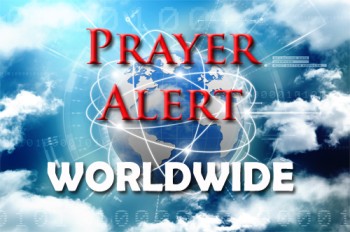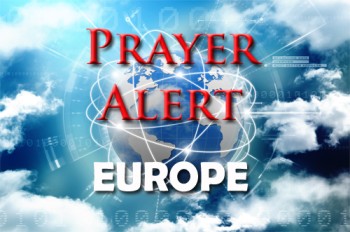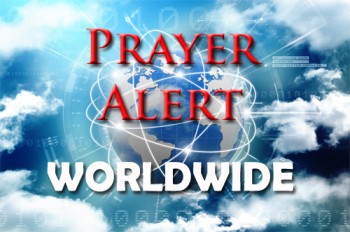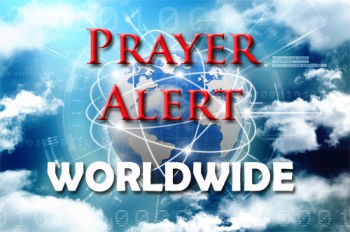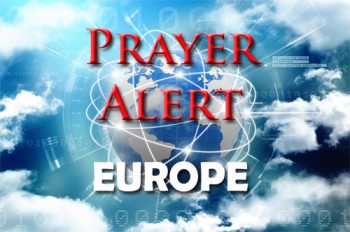Displaying items by tag: Pope Francis
Argentine pastors’ personal experiences working with Pope Francis
The death of Pope Francis has sparked reflection among church leaders in Argentina who knew him personally. Evangelical pastor Alejandro Rodríguez described him as 'a pastor with the smell of sheep’, deeply connected with the people. Legendary evangelist Luis Palau considered him a friend, despite theological differences, praising Francis’s humility and respect for the Bible. During his time as archbishop and pope, Francis built bridges with Evangelical leaders, supporting Bible engagement and championing unity. He collaborated on projects like the Community Bible Experience and encouraged Catholics to read Scripture. His personal gestures, such as serving others and breaking protocol, left a lasting impression. While not all Evangelicals agreed with his views or reforms, many respected his sincerity, humility, and service to the poor. Many church leaders have expressed sorrow and praised his legacy of service and openness to inter-church dialogue. His life invites reflection on the importance of unity without compromise and the shared mission of lifting high the name of Jesus. See
World leaders plan to attend Pope’s funeral in spite of previous differences
As tributes flood in for Pope Francis, attention turns to his legacy of engaging controversial issues such as migration, climate change, and global conflict – and therefore clashing with world leaders. Notably, Francis clashed with Donald Trump over immigration, denouncing his border wall and mass deportation policies. Tensions also emerged with Argentina’s Mauricio Macri and Javier Milei; Milei even called Francis ‘evil’, but softened his tone after taking office. The Pope also criticised Brazil’s Jair Bolsonaro over Amazon deforestation and championed Indigenous rights. On Gaza, Francis condemned Israel’s military actions, suggesting possible genocide - a statement that drew harsh rebukes from Israeli officials. He also condemned the Ukraine war without naming Vladimir Putin directly, while urging dialogue. His ‘white flag’ comment upset Ukrainian leaders. Yet many world leaders - including Trump, Milei, and Zelensky - plan to attend the funeral, honouring a pontiff who never shied from challenge.
Vatican: Pope Francis suffering from pneumonia
After being admitted to hospital on 14 February, Pope Francis has developed pneumonia in both lungs, and his condition remains ‘complex’. The 88-year-old pontiff has been battling a respiratory infection for over a week. A follow-up CT scan confirmed bilateral pneumonia, prompting adjustments to his treatment. Despite the serious nature of his illness, the Vatican reports that he remains in good spirits, spending time reading, resting, and praying. Francis' history of lung complications, including pleurisy and a partial lung removal in his youth, makes him particularly vulnerable to such infections. His illness has raised concerns over the upcoming Holy Year, a major Catholic ‘jubilee’ event expected to draw millions to Rome in 2025; uncertainty looms over his ability to fulfil his demanding schedule. See
Peru: Pope Francis dissolves Catholic movement
Pope Francis has dissolved the Sodalitium Christianae Vitae (SCV), a Peruvian-based Catholic movement, after a Vatican investigation exposed years of abuse by its founder, Luis Figari, and other leaders. The probe revealed sexual, spiritual, and financial abuses, along with misuse of church funds. The SCV, founded in 1971 as a conservative reaction to liberation theology, once had 20,000 members across South America and the USA. Victims accused Figari of sodomy, psychological abuse, and exploitation. After failed reforms, Francis ordered an investigation which uncovered systemic abuses. Figari and ten top members were expelled, but calls for reparations remain unanswered. Victims praised the dissolution as a step toward justice.
East Asia: the Pope’s longest-ever trip
Pope Francis, despite health challenges, has embarked on his longest trip as pope, visiting Indonesia, Papua New Guinea, East Timor, and Singapore. In this significant visit, which will cover over 32,000 km, he will aim to strengthen ties with Asian countries where Catholicism is often a minority faith but plays a crucial role in education and charity. The trip also highlights the shift in the Catholic Church’s focus toward Asia and away from a Eurocentric model. In Indonesia, the Pope will meet with Muslim leaders and sign an interfaith declaration, emphasising harmony between religions. Francis will again urge world leaders to take stronger action against climate change, particularly when he is in Papua New Guinea, and in the background there are ongoing efforts to rebuild diplomatic ties with China. This trip demonstrates the Pope’s continued energy - even at the age of 87 - and commitment to global outreach.
COP28: Pope unable to attend
Pope Francis has announced that due to health concerns he will be unable to attend the COP28 climate conference in Dubai, which will run from 30 November to 12 December. The Pope has been an advocate for environmental protection and climate action, and his absence from the conference is seen as a setback to efforts to address climate change on a global scale. The Vatican is investigating whether there is any way he could contribute to COP28 remotely. Representatives of 197 nations will be attending the conference, and among notable participants will be King Charles III, Rishi Sunak, and Indian prime minister Narendra Modi.
Italy: evangelical group condemns Vatican ecumenical meeting
Italian evangelical Christians have protested against the ‘active and public’ participation of Thomas Schirrmacher, secretary-general of the World Evangelical Alliance (WEA) in a large ecumenical prayer vigil organised in the Vatican on 30 September. This featured prayers led by the heads of twenty Christian confessions, including Mr Schirrmacher. The Italian Evangelical Alliance (AEI) said, ‘We are confused and disappointed. Once you pray publicly with the Pope, in St. Peter’s Square, in front of a Marian portrait, embracing the message of spiritual unity with liberals and orthodox leaders, your alleged distinction becomes secondary.’ Pope Francis said the event would help to sow unity among Christian confessions. According to the event’s website, he shared ‘personal memories of his ecumenical journey’. The Spanish Evangelical Alliance has also criticised WEA’s participation: see
‘Build bridges not walls’
Pope Francis has called on leaders to show compassion for refugees fleeing war, persecution, or poverty. Instead of ensuring they reach safety, the UK government has introduced a new 'Illegal Migration Bill' which would shut the door on people needing protection and enable the government to deport them to countries such as Rwanda - a policy the Court of Appeal has ruled unlawful. The Catholic Agency for Overseas Development (CAFOD) wants people to ask their MPs to oppose the bill so that we can welcome those who need protection. This landmark intervention on domestic policy refers to the Pope's call for the need to show maximum respect for the dignity of each migrant and ‘build bridges not walls’ as well as ‘expanded channels for a safe and regular migration.’ But CAFOD said that instead of showing respect and dignity, the UK government is trying to make the situation for people seeking safety even worse.
Democratic Republic of Congo: ‘poison of greed’
When Pope Francis visited the DRC he said that the rich world must realise that people are more precious than minerals in the earth beneath them. Speaking to dignitaries at the presidential palace, he talked of ‘terrible forms of exploitation, unworthy of humanity, where vast mineral wealth fuels war, displacement and hunger. Hands off the DRC. Hands off Africa. Stop choking Africa: it is not a mine to be stripped or a terrain to be plundered.’ Congo has some of the world's richest diamond deposits as well as gold, copper, and other minerals. ‘The poison of greed has smeared its diamonds with blood,’ he said. An estimated 5.7 million people are internally displaced in Congo; 26 million face severe hunger, largely due to armed conflict. Half of the population are Roman Catholics, and the Church plays a crucial role in running schools and health facilities, as well as promoting democracy.
Greece: Pope condemns treatment of migrants
Speaking on the Greek island of Lesbos, Pope Francis said the migrants there were being used for political propaganda. He urged people to focus on the causes of migration, such as ‘forgotten wars’, instead of punishing those suffering from their effects. He criticised building walls to keep people out. Saying that there are people persisting in treating the problem as something that doesn’t concern them, history teaches us ‘narrow self-interest and nationalism lead to disastrous consequences.’ The pandemic showed that major challenges must be confronted together and there were some signs of this in climate change, but little sign of such an approach to migration. He spoke in front of refugees but aimed all comments at European political leaders. His words betrayed frustration at ‘the failure of politicians to adequately address the migrant issue’.

